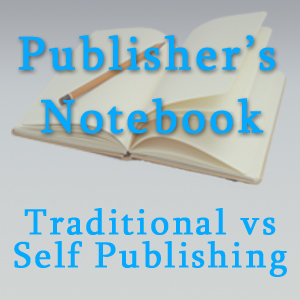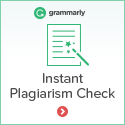Traditional vs Self Publishing: Which Route Should You Take?
Several advantages and disadvantages of traditional vs self publishing books plague writers when trying to determine which route to take once their book is complete. You must know beforehand so you don't spin your wheels waiting for something that might just never happen.
I started out my writing before computers became a thing, and the soon to follow simplicity of self-publishing, so I learned a lot about traditional publishing in my earlier years of trying to publish books. I can't say I have the personal experience of actually being traditionally published since I have self-published all of my books since several failed attempts.
That doesn't mean you shouldn't research traditional publishing to see if it is the right fit for you. As you will see, both ways have benefits and disadvantages, but one can lead directly to the other with some luck.
Determining The Best Route Between Traditional and Self Publishing
I ran a case study based on my past results and research to see just how long it takes to publish a book through both traditional and self publishing.I looked at all of the benefits, advantages, and disadvantages of each and it all boiled down to three major areas of concern and concentration:
Time
Expenses
Income
For traditional publishing, I found that waiting for your book to be published, or time, is a huge factor. When you are writing a lot of books and want to get them out to the world fast, going through a traditional book publisher may not work very well for you as a writer.
First, you must go through the solicitation stage, trying to pass an agent's tests before moving on. Once you have an agent, things may get easier, but time is still a major factor. It can take several weeks to several months just to hear if your book has been accepted by a publisher.
Then, once it's accepted, the lengthy publishing process - making sure everything is perfect before they publish your book. Granted, your book should be perfectly written before you submit it to a publisher, but they will still run the book through their editors to look out for their best interests before putting their name on your book as publisher.
Time was not a factor in self-publishing. As soon as a book is done being edited, it is basically ready to be published and can be done in a couple of days depending on the size of the book.
Next in the traditional vs self publishing research, publishing expenses were a big concern for most writers, especially beginners. Most writers aren't being supported by their writing "business" early on, so they most likely have a job or other form of income to pour time into as well to make money. They don't have a lot of money up front for any kind of publishing costs. So they want to go as cheap as possible, a surefire way to not get excepted by a publisher.
But, with self-publishing, the cheaper route is very possible, and if you are good enough, it can even be a free route.
For traditional vs self publishing, I've found that you should have a professional editor really look over your book and perfect it before both types of publishing.
This will cost some money, but if you go through a traditional publisher, they will also have it professionally edited by "their editors" before they actually publish your book. This protects them from embarrassment by having their name on your book as a major publisher. If you self-publish, all of this is on you and is a direct representative of your writing.
Additional things must be done for traditional vs self publishing. You should also have a synopsis professionally written for your book that will help get you in the door with agents and publishers. You must also submit your manuscript in the proper format with a cover letter and sometimes a query letter. This all takes extra time and effort.
Whether you traditionally publish or self-publish a book, you must make sure you have the best book cover for your book. Book covers can be a small cost to several hundred dollars depending on who does it. If you leave it up to a publisher, they aren't cheap. Some more expenses that may incure with traditional vs self publishing are being forced to buy a set amount of books, paying for marketing plans, and going on book tours to help market your books.
A benefit of self-publishing is that you can edit and republish your books if you find mistakes at no cost. Since you are the publisher, you can add your book to multiple book selling platforms and even republish it for your personal websites or on other platforms.
When you traditionally publish a book, you generally can't publish that book anywhere else (sometimes many years) and you can't make changes or corrections once it is published.
After Your Book is Published
With traditional vs self publishing, marketing is mostly on the author. A publisher doesn't want to lose any of their investment in you, so you are forced to market your book until they make back their investment (including any advances or money they paid out to get your book in print). When you self-publish, you are on your own. There isn't any outside pressure to force you to market your book (which can be bad if you can't self motivate), but you also can work at your own pace and set your schedule (great for beginners who have other vested interests for making money).
In order to sell books quickly to reach the publisher's goals, you need to spend quite a bit of money to get your book out there to readers. Once again, that pressure isn't there with self-publishing. And the cost can be a lot less. There are many free or very low cost ways to market books. Once you are making money, reinvesting your earnings back into marketing will help sell more books.
My Personal Opinion About Traditional vs Self Publishing
My personal take on traditional vs self publishing is to self-publish as a beginner with intentions to publish traditionally after you prove yourself as a writer.
Unless your book is best seller quality out of the gate or you are already a well known author with other great sellers, a traditional route may not be a good route nowadays.
Publishers are very picky and want only one thing - to make money from your book. That will require you to do your part in marketing, something you have to do whether you publish traditionally or through self-publishing. Nobody will buy your book if they don't know it's there.
Making income with your traditionally published books (unless you sell millions of copies) is not always a great expectation. Of course if you already have some exposure and can get your book in front of it with the backing of a publisher, then you are better off self-publishing your books.
The author of 50 Shades of Gray self-published this best selling book before it was picked up by a publisher. Having the exposure and popularity through self-publishing can land you a great publishing contract, so sometimes it's best just to get your book out there and see what it does before wasting a lot of time and money to figure out it isn't a best seller.
With self-publishing, it's all up to you. You work on your own time and can publish a book as fast as you want (it only takes about a day to publish a book and about 72 hours for it to go live). There are no major costs for publishing unless you want a very nice cover and a professional editor to look at your book. Cost of publishing is free. Income is totally up to you and how well you market your books.
Let me know your thoughts about traditional vs self publishing based on your personal experiences. Contact me with your questions, comments, or concerns.






